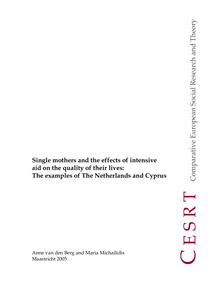Background:In the context of decreasing breastfeeding rates and unsuccessful breastfeeding promotion campaigns, a qualitative research project in the Northern part of the Netherlands was initiated.Objectives:As part of the overall project, the aim of this study was to explore the content and sources of breastfeeding knowledge among primiparous women. Identifying and categorizing the content and the sources of breastfeeding knowledge could guide professionals such as midwives and maternity nurses as well as others in the women’s surroundings to engage in disseminating knowledge and therefore support women in achieving their breastfeeding goals.Methods:We conducted 26 in-depth interviews from the emic perspective with 13 new mothers pre- and postpartum, up to saturation level. Transcripts were analysed applying thematic analysis. As sensitising concepts, the themes identified were divided into two categories: those gained from 'professional' sources and those obtained from 'popular' sources.Results:Five knowledge content themes were identified: (1) pros and cons of breastfeeding, (2) how breastfeeding works, (3) individual breastfeeding practice, (4) expressing milk, and (5) formula feeding. ‘Professional’ sources are perceived as more helpful than ‘popular’ sources, whereas ‘intuition’ was inductively identified as an important knowledge source.Conclusion:Limited breastfeeding practice exposure, along with the recommendations to breastfeed for six months and perceptions of breastfeeding as ‘natural’ at the same time, generates much pressure in women. Emphasizing all knowledge content in campaigns, addressing a variety of target groups in women’s social environment, and recognizing intuition as an adequate source of knowledge supported by professionals will facilitate women in making informed infant feeding decisions.
LINK
The objective of this study is to illuminate the effects of intensive aid on the self-reliance and independence of single mothers, and to show what is and what can be done to improve the empowerment of this group. Firstly the paper focuses on the effects of intensive social aid on the self-reliance and independence of single mothers, and how this affects the process of regaining social inclusion in each of the home countries. Secondly the results are compared with the second country, in respect of the socio-economic and cultural circumstances. This study is based upon a comparative data collected from randomly selected single mothers in each country. In the Netherlands information was collected during in-depth interviews; in Cyprus semi-structured interviews and questionnaires were used. The aim is to shed light on the issues that impact on the lives and the well-being of these mothers and their children in their social context. This chapter presents sections of two large research projects which attempted to investigate the single-mother families from the woman’s perspective, and it aims to analyse the following: • Factors that hinder and improve the independent life of a single mother • Choices that women make during the offered aid period and their motives • The results of this change.
DOCUMENT

The unexpected death of a child is one of the most challenging losses as it fractures survivors’ sense of parenthood and other layers of identity. Given that not all the bereaved parents who have need for support respond well to available treatments and that many have little access to further intervention or follow-up over time, online interventions featuring therapeutic writing and peer support have strong potential. In this article we explore how a group of bereaved mothers experienced the process of participating in an online course in therapeutic writing for the integration of grief. Our research questions were: How do parents who have lost a child experience being part of an online course in therapeutic writing? What are the perceived benefits and challenges of writing in processing their grief? We followed an existential phenomenological approach and analyzed fieldwork notes (n = 13), qualitative data from the application and assessment surveys (n = 35; n = 21), excerpts from the journals of some participants (n = 3), and email correspondence with some participants (n = 5). We categorized the results in three meaning units: (1) where does my story begin? The “both and” of their silent chaos; (2) standing on the middle line: a pregnancy that does not end; (3) closures and openings: “careful optimism” and the need for community support. Participants experienced writing as an opportunity for self-exploration regarding their identities and their emotional world, as well as a means to develop and strengthen a bond with their children. They also experienced a sense of belonging, validation, and acceptance in the online group in a way that helped them make sense of their suffering. Online writing courses could be of benefit for bereaved parents who are grieving the unexpected death of a child, but do not replace other interventions such as psychotherapy. In addition to trauma and attachment informed models of grief, identity informed models with a developmental focus might enhance the impact of both low-threshold community interventions and more intensive clinical ones. Further studies and theoretical development in the area are needed, addressing dialogical notions such as the multivoicedness of the self. Lehmann OV, Neimeyer RA, Thimm J, Hjeltnes A, Lengelle R and Kalstad TG (2022) Experiences of Norwegian Mothers Attending an Online Course of Therapeutic Writing Following the Unexpected Death of a Child. Front. Psychol. 12:809848. doi: 10.3389/fpsyg.2021.809848
DOCUMENT
